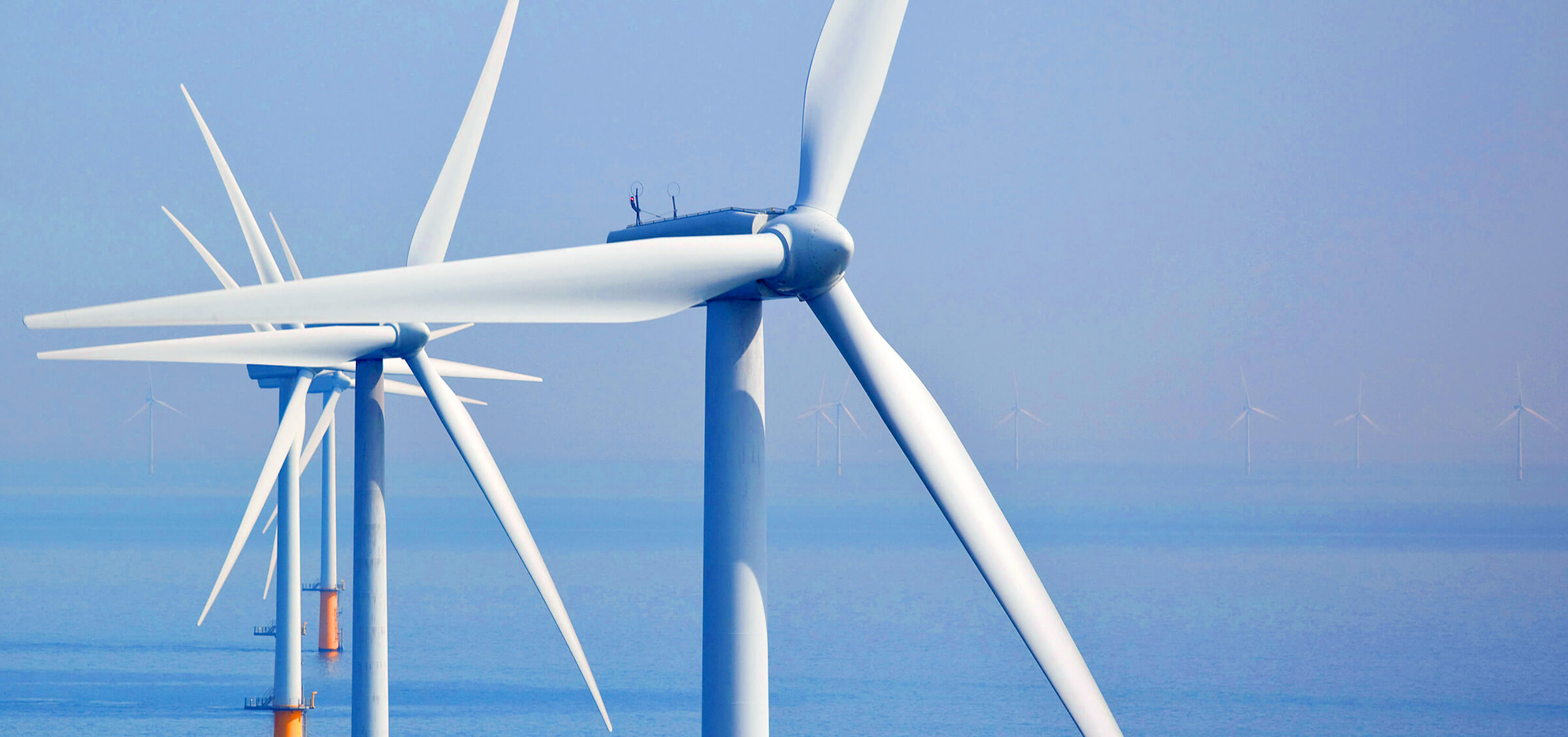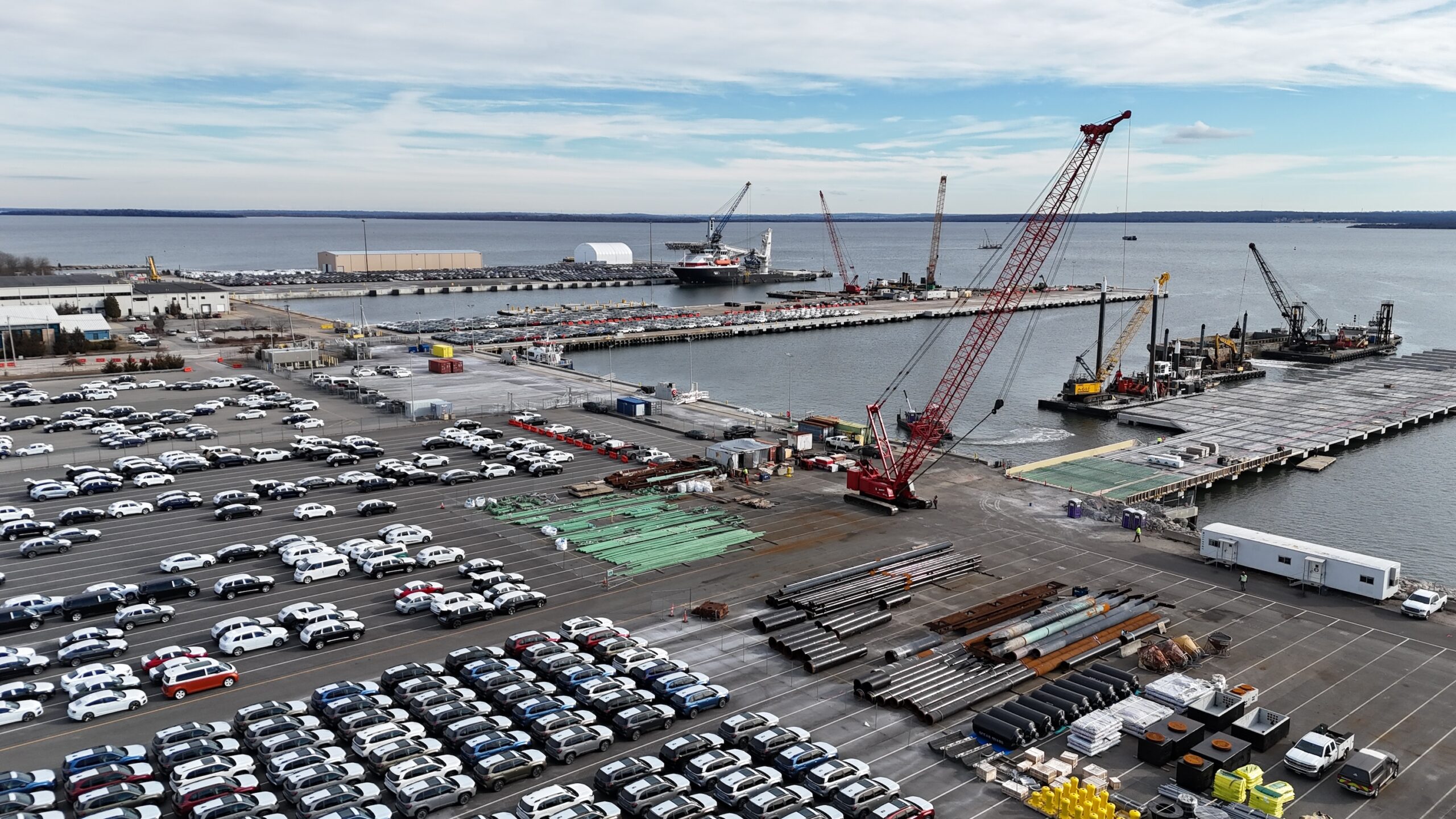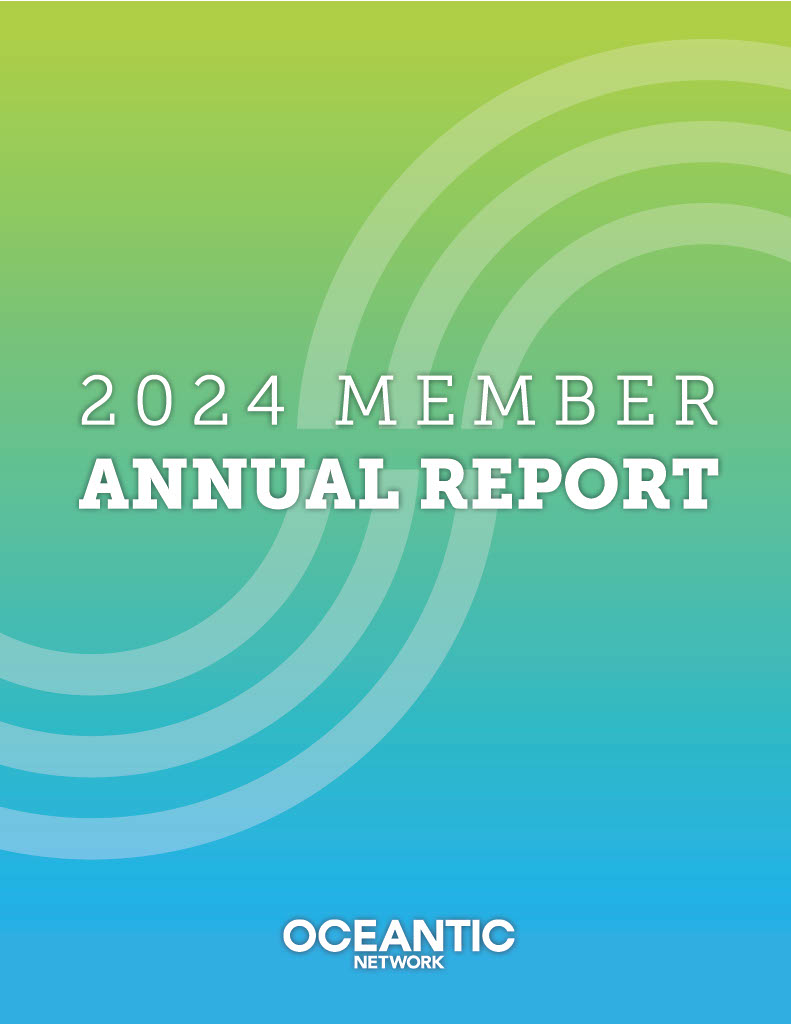Oceantic Network’s Suppliers’ Guide to Success lays out key considerations for building a robust floating wind sector on the West Coast, enabling a healthy supply chain, and creating thousands of American jobs
For Immediate Release: May 21, 2024
Media Contact: Luke Jeanfreau | [email protected] | 504-302-8079
BALTIMORE — Meeting California and Oregon’s offshore wind targets will necessitate upgrades to West Coast port and transmission infrastructure, alongside scaling up the region’s limited supply chain capabilities, according to a report published today by Oceantic Network. The white paper, Suppliers’ Guide to Success: Smart Scaling for the U.S. West Coast Floating Wind Market, analyzes the requirements for a full buildout of floating offshore wind on the West Coast and proposes solutions to industry and government that will allow the sector to flourish.
The paper covers several key actions West Coast policymakers can take to ensure the region can become a global leader in floating offshore wind:
- Prioritize investments in port and transmission infrastructure.
- Structure offtake awards in a way that emphasizes project deliverability.
- Establish a firm, steady, and long-term procurement schedule for offshore wind power.
By taking steps outlined in the Suppliers’ Guide to Success, West Coast states can help establish a sustainable, competitive floating offshore industry that is ready to scale to meet future energy demand for decades to come.
“West Coast states have led the charge in protecting the environment and decarbonizing their economies,” said John Begala, vice president of federal and state policy at Oceantic Network. “Now, those same states have the chance to become leaders in a new, global renewable energy industry with floating offshore wind. Policymakers must take advantage of this opportunity, which will bring jobs and economic development to the region while providing much-needed clean energy for the future.”
The paper condenses lessons learned from offshore wind policy regimes on the East Coast and around the world with the goal of avoiding unnecessary pitfalls for West Coast offshore wind deployment. It also details the current market landscape that underpins the region’s opportunity and the work already done to get the industry where it is.
“We applaud the key state and federal policymakers who have gotten the industry to this point, and we welcome an opportunity to share our collective experience moving forward,” Begala added. “Together we can make the West Coast a leader in floating wind and build this exciting new sector.”
The Suppliers’ Guide to Success was produced with the help of the Network’s West Coast Supplier Council, a group of companies focused on the unique needs and development of the region’s offshore wind sector and its supply chain.
Members of the West Coast Supplier Council include:
- Aker Solutions AS
- Burns & McDonnell
- Crowley Wind Services
- EEW AOS
- Foss Offshore Wind
- Hellenic Cables
- Hitachi Energy
- Manson Construction Co.
- Nexans
- Principle Power, Inc.
- Vestas American Wind Technology
The Suppliers’ Guide to Success is available online. For more information, or to arrange an interview with the Network, contact Luke Jeanfreau at [email protected] or 504-302-8079.
###
As a non-profit organization, the Oceantic Network’s driving purpose is to inform, coordinate, and mobilize human ingenuity, enterprise, and labor to take advantage of the urgent need to tap the vast offshore wind and renewable energy resources that lie in the world’s oceans. The collective, coordinated efforts of our 600+ members equip communities and nations to accelerate the transition to clean energy and create economic opportunities.



